Anyone who has oily skin will know that it can be both a blessing and a burden. Although oiliness makes it more likely for pores to be clogged which can cause acne, the upside is you can get that glowing look easily and studies show that this abundance in sebum "helps preserve the skin" which may lead to fewer wrinkles, according to the American Academy of Dermatology Association.
However, it can't be denied that oily skin can be a bit high maintenance. If you want to keep it matte, you may need to invest in a trusty primer, oil-blotting films and adjust your skincare routine from time to time. While the first two oily skin-combatting strategies are straightforward, the last one is tricky, to say the least. How should one adjust their oily skin skincare routine according to the weather? What are the products that should be added in or taken out of the roster? To answer all your pressing questions, we got in touch with Dr. Krizia Ty, a board-certified dermatologist.
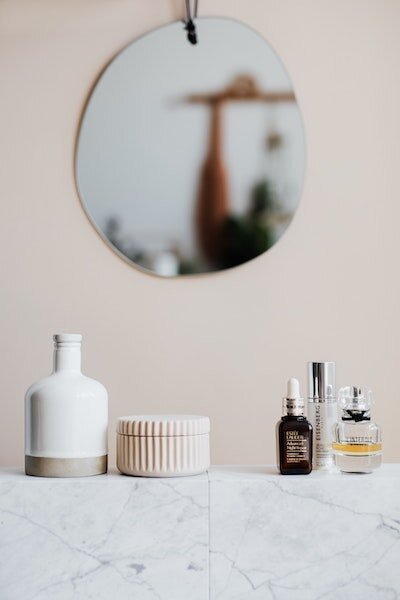
Adjusting your skincare routine from time to time is essential. (Photo from: Karolina Grabowska via Pexels)
All about oily skin
First things first, what really causes oily skin? Well, there are several factors. Hormones are one of the suspects. "Androgen hormones produced by the body play a major role in stimulating the sebaceous glands (oil glands) to produce more oil in the skin," Dr. Ty explained and added that a spike in androgen hormone secretions usually occurs during puberty or when one is dealing with certain conditions such as Polycystic Ovarian Syndrome (PCOS).
Another culprit could be your diet. "High glycemic index foods and dairy milk trigger the release of a growth factor called Insulin Growth Factor-1 (IGF-1) which stimulates increased androgen hormone release causing the sebaceous glands/oil glands to produce more oil," Dr. Ty shared. Unfortunately, in the modern world, refined sugar and carbohydrates are common in the food we take, from soft drinks to breakfast cereals.
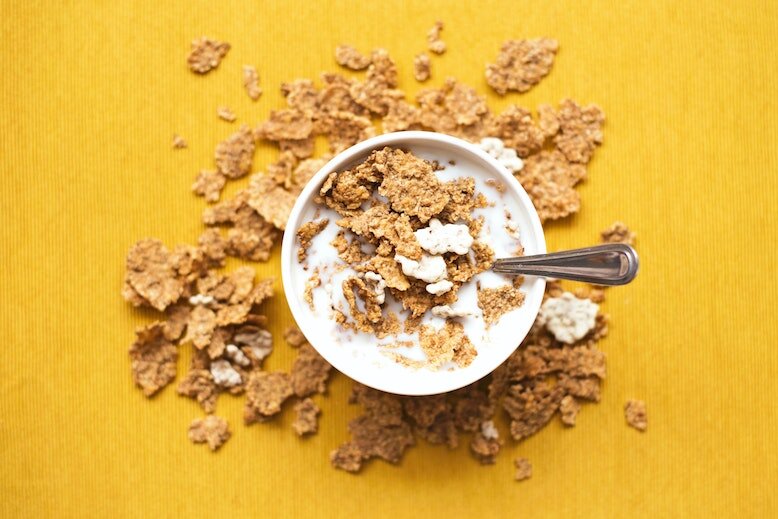
Your favourite cereal can be a source of refined sugar. (Photo from: Nyana Stoica via Unsplash)
But what if you're well past puberty and you stay away from refined sugar and carbs already? There's another acne-causing factor that you should watch out for, one that pervades our hustle-obsessed culture: stress. It turns out that stress "causes the body to produce a hormone called cortisol which stimulates increased production of androgen hormones leading to increased oil in the skin."
Ultimately, a good diet and lifestyle is key to managing and to not exacerbate oily skin problems. Another thing you have to be vigilant about is adjusting your oily skin skincare routine. Our skin doesn't exist in a vacuum, it reacts to outside forces including the weather. "In warm and humid climates, the skin is usually more hydrated and resilient whereas, in cold and dry climates, the skin tends to be drier and more sensitive," Dr. Ty said. "In order to maintain the skin’s balance, you need to help it adapt by using the right skincare products."
Adjustments for the hot weather
"Stick to lighter formulations," this is the encompassing advice for adjusting your skincare routine during the hot months. The reason for this is the skin can "become overly hydrated due to the increased humidity and increased oil production" during the summer and if you pile on some heavy-duty formulations, chances are you'll end up clogging your pores.
But this doesn't mean that you should skip moisturiser altogether. "One common misconception is that people with oily skin do not need to use moisturiser. This is not true because even if your skin is producing oil to prevent dehydration, it does not automatically mean that your skin barrier is intact," Dr. Ty explained. Look for lightweight moisturisers with non-comedogenic ingredients like hyaluronic acid, glycerin, ceramides, natural moisturising factors like amino acids, urea and dimethicone.
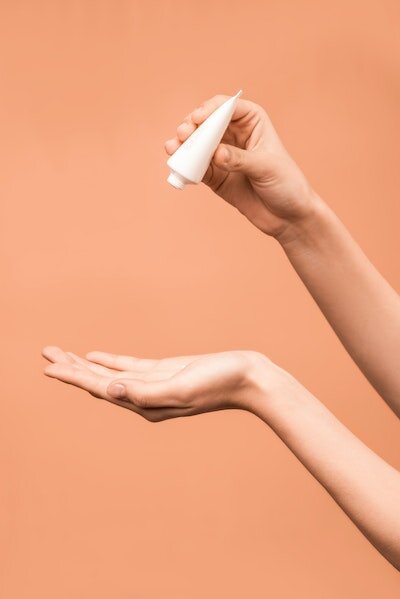
Lightweight moisturisers are the way to go during the summer months. (Photo from: Shiny Diamond via Pexels)
For maintaining clean pores in hot weather, Dr. Ty recommends using Hydroxy Acids (HAs) like glycolic acid, mandelic acid or salicylic acid as chemical exfoliants "to loosen the dead skin" once or twice a week. She also suggests incorporating retinoids such as adapalene, tretinoin or retinol in your routine. These are needed to "decrease the proliferation of dead skin cells that can clog pores, to regulate sebum production, to decrease inflammation and to kill bacteria that can cause acne".
If you have the means, you may also consider more advanced treatment such as laser treatments which Dr. Ty said provide a double-acting solution that can "regulate the skin’s oil production and at the same time stimulate collagen production to improve the skin’s elasticity and texture".
Tweaks for cold weather
Here's some good news: when the rainy season comes, you don't really need to give your oily skin skincare routine a makeover. You can thank our tropical weather for this. Because the temperature and humidity levels in our region don't really undergo an extreme change during the rainy season, there's no need to make huge adjustments to your current regimen. "People who live in areas where the relative temperature and humidity do not fluctuate or vary as much don’t really need to adjust their skincare regimen too much," Dr. Ty said. However, she still strongly reminds that sunscreen is a must even when the weather is gloomy because those damaging UV rays are still present.
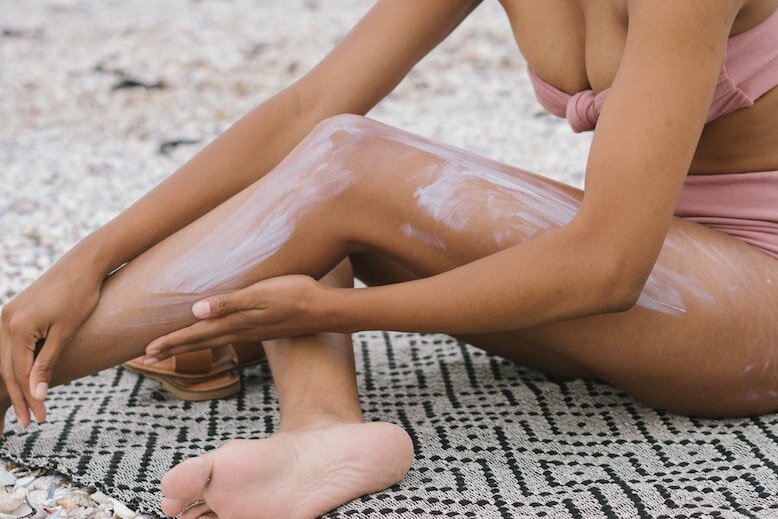
Sunscreen is a must no matter the weather. (Photo from: Retha Ferguson via Pexels)
But it's a completely different story for when you travel abroad during the winter season where temperature and humidity can fall extremely low. In such cases, Dr. Ty said that there is an increased Transepidermal Water Loss (TEWL) and a "corresponding disruption of the skin barrier which can make it dry, flaky and sensitive even if your skin is oily".
To protect the skin's barrier, on top of using gentle cleansers and hydrating moisturisers and sunscreen, Dr. Ty said that a "barrier-repairing cream (or gel or serum) can be added to soothe minor irritations and restore the skin’s moisture and balance". When on the hunt for one, some ingredients that you should look out for are hyaluronic acid, ceramides, niacinamide (Vitamin B3), zinc, Centella Asiatica, madecosside and panthenol (Vitamin B5).
Your rain or shine essentials
With climate change becoming more and more palpable each day, we're noticing erratic changes in the weather. So how should we adjust our oily skin skincare routine in response to this sad and unfortunate situation? By investing in rain or shine essentials. This includes "gentle foaming or gel-based cleansers, oil-free gel or lotion-based moisturisers and sunscreens, Hydroxy Acids (HAs) in the form of toners, peels or washes for exfoliation (applied once to twice a week) and regular use of topical retinoids", according to Dr. Ty.
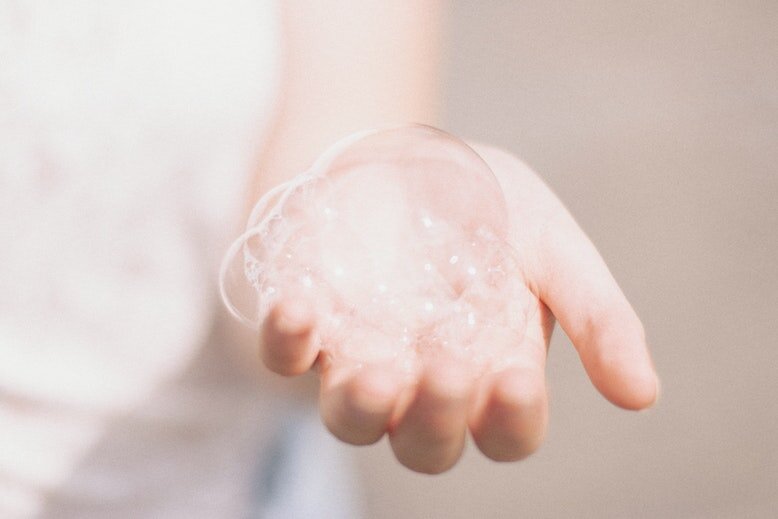
Gentle cleansers are a staple in any oily skin skincare routine. (Photo from: Matthew Tkocz via Unsplash)
She also emphasises the importance of listening and responding to your skin's needs. "Oil-regulating skincare products with HAs and retinoids can make your skin feel dry and flaky so it's important to apply hydrating moisturisers liberally after you use them," Dr. Ty said. "When your skin still feels dry and irritated after using oil-regulating products or when the weather is cooler and your skin tends to be less oily, you can also decrease the frequency of application of the HAs and retinoids. Give the skin a few days to rest, apply a barrier repairing cream, gel or serum to speed up skin recovery then resume application of oil-regulating products after the dryness and irritation subside."
If you're still confused or feel overwhelmed, there's always this solution: consult with a dermatologist. "Professionals can help you pick the appropriate concentration and combination of products and can formulate a simple but efficient skincare regimen for your specific skin type and concern," Dr. Ty said.
Managing oily skin is indeed a lifelong task that requires patience and vigilance. But don't you agree that having healthy skin is worth all the effort?
(Cover photo from: Shiny Diamond via Pexels)
Check out more of our skincare guides here.
Comments, questions or feedback? Email us at [email protected].


_SPF_50_Cover.jpg)





